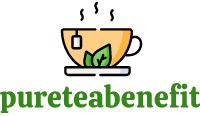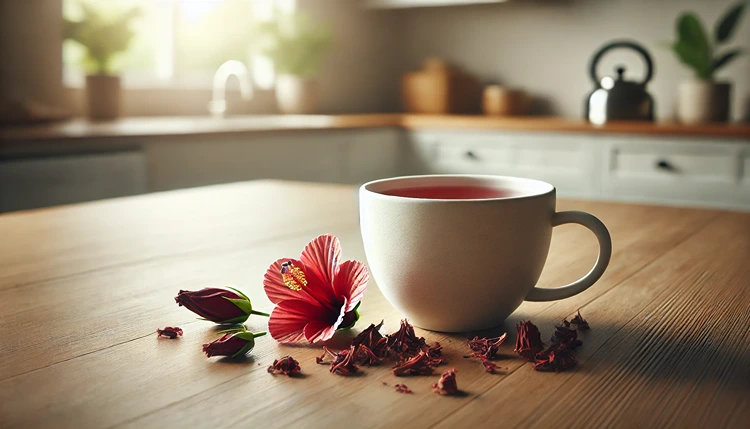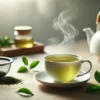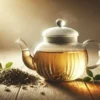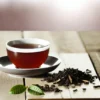Hibiscus tea has been getting a lot of attention for its potential to help lower blood pressure naturally. The secret lies in the vibrant red flower of the hibiscus plant, which is rich in antioxidants and other compounds that work wonders on our cardiovascular system. If you’re someone looking for natural ways to manage your blood pressure, hibiscus tea might just be the brew for you.
So, what is it about hibiscus that makes it so special? The active compounds in this tea, including anthocyanins and flavonoids, are known to help relax blood vessels, improve circulation, and reduce blood pressure. Let’s take a closer look at how this delicious tea can make a difference in your blood pressure health.
How Does Hibiscus Tea Lower Blood Pressure?
The magic of hibiscus tea comes from its ability to act as a natural ACE inhibitor. Inhibiting the angiotensin-converting enzyme (ACE) helps to relax blood vessels, allowing blood to flow more easily, which in turn reduces blood pressure. Studies have shown that hibiscus tea can have a similar effect to some blood pressure medications, but without the risk of harsh side effects.
Regular consumption of hibiscus tea can lead to noticeable improvements in systolic and diastolic blood pressure, particularly in people with mild to moderate hypertension. This is great news if you’re trying to manage your blood pressure without relying solely on pharmaceuticals. Plus, who doesn’t love the idea of sipping on a refreshing, tangy tea while supporting your heart health?
What Studies Say About Hibiscus Tea and Blood Pressure
Several studies back up the claim that hibiscus tea can help lower blood pressure naturally. A study published in the Journal of Nutrition found that people who drank three cups of hibiscus tea daily experienced significant drops in systolic blood pressure after just six weeks. Another study conducted in Iran also found that regular consumption of hibiscus tea lowered blood pressure in adults with mild hypertension.
These findings suggest that hibiscus tea is not just a tasty treat but also a powerful ally in the fight against high blood pressure.
Helpful Hint:
If you’re new to hibiscus tea, start by drinking one cup a day and gradually increase your intake. Drinking too much too soon can sometimes cause a sudden drop in blood pressure, which might make you feel lightheaded. Always check with your doctor before adding hibiscus tea to your routine, especially if you’re on blood pressure medication.
How to Brew Hibiscus Tea for Maximum Health Benefits
When it comes to making hibiscus tea, the fresher the ingredients, the better. You can use dried hibiscus petals, which are often available at health food stores or online. Brewing it correctly ensures that you’re getting the full range of health benefits, especially those that help with blood pressure regulation.
Refreshing Hibiscus Tea
Ingredients
- 1/4 cup dried hibiscus petals
- 4 cups water
- 1-2 tablespoons raw honey or agave (optional)
- Fresh mint leaves (optional)
Instructions
- Bring 4 cups of water to a boil in a medium-sized pot.
- Add the dried hibiscus petals to the boiling water and reduce heat to a simmer.
- Let the petals steep for 5-10 minutes, depending on how strong you want the flavor.
- Strain the tea into a pitcher and add honey or agave if desired.
- Serve hot or chilled, garnished with fresh mint leaves for a cooling twist.
Can Hibiscus Tea Help Everyone with High Blood Pressure?
While hibiscus tea is a fantastic natural remedy for many people with high blood pressure, it may not be the right fit for everyone. If you’re pregnant, nursing, or on medications that lower blood pressure, you’ll want to be cautious. Hibiscus tea can sometimes amplify the effects of blood pressure-lowering medications, leading to hypotension (low blood pressure).
It’s always a good idea to consult your doctor before adding any new herbal teas or supplements to your daily routine, especially if you’re dealing with specific health conditions or taking medications.
How Much Hibiscus Tea Should You Drink to Lower Blood Pressure?
When it comes to lowering blood pressure, moderation is key. Most studies recommend drinking 2-3 cups of hibiscus tea per day for optimal results. Drinking more than this can potentially lead to too much of a good thing, causing your blood pressure to drop too low.
If you’re just starting, begin with one cup and gradually increase your intake as your body adjusts. Keep in mind that the results won’t be immediate. Like many natural remedies, it can take several weeks of consistent consumption to see noticeable improvements in your blood pressure levels.
Are There Any Side Effects of Drinking Hibiscus Tea?
Hibiscus tea is generally considered safe for most people, but it can have some side effects if consumed in large quantities. In rare cases, drinking too much hibiscus tea can lead to an upset stomach or mild headaches. Additionally, as mentioned earlier, it may lower blood pressure too much in individuals already on blood pressure medications.
If you’re pregnant or breastfeeding, it’s best to avoid hibiscus tea, as there isn’t enough research to confirm its safety during pregnancy. For everyone else, hibiscus tea can be a tasty, safe, and effective way to support your heart health.
How Does Hibiscus Compare to Other Natural Remedies for Blood Pressure?
There are plenty of natural remedies out there claiming to lower blood pressure, but how does hibiscus tea stack up against the rest? Compared to other popular natural remedies like garlic, flaxseed, and beetroot, hibiscus tea offers a gentle but effective approach. It’s easy to incorporate into your daily routine, doesn’t require any complicated preparation, and tastes great.
Unlike some of these other remedies, which may have stronger flavors or require specific preparation methods, hibiscus tea can be enjoyed hot or cold, making it a versatile option for people looking to lower their blood pressure naturally.
Can Hibiscus Tea Replace Blood Pressure Medications?
While hibiscus tea has been shown to help lower blood pressure naturally, it should not be considered a replacement for prescribed medications, especially in people with severe hypertension. It’s always best to work in conjunction with your healthcare provider when exploring natural remedies like hibiscus tea.
For those with mild to moderate hypertension, hibiscus tea can be a complementary part of a healthy lifestyle, alongside diet, exercise, and stress management. It’s important to remember that the effects of hibiscus tea are gradual, and it may take weeks or months to see significant improvements in blood pressure levels.
Helpful Hint:
If you’re considering reducing your blood pressure medication while incorporating hibiscus tea into your routine, make sure to consult your doctor. Never stop taking prescribed medication without professional advice, as doing so can pose serious health risks.
Other Health Benefits of Hibiscus Tea
While hibiscus tea is best known for its blood pressure-lowering properties, this tart and tangy beverage has a range of other health benefits worth mentioning:
- Rich in Antioxidants: Hibiscus tea is packed with antioxidants that help protect your cells from damage caused by free radicals. This can contribute to better overall health and may reduce the risk of chronic diseases.
- Supports Liver Health: Some studies suggest that hibiscus tea can promote liver health by increasing detoxifying enzymes and protecting the liver from damage.
- Aids in Digestion: The diuretic properties of hibiscus tea can help promote healthy digestion and reduce bloating, making it a soothing option for those with digestive issues.
- Boosts Immune System: Hibiscus is a rich source of vitamin C, which plays a vital role in strengthening the immune system and helping the body fend off colds and infections.
Hibiscus tea is a natural powerhouse when it comes to supporting overall health. Its versatility, along with its ability to lower blood pressure, makes it a great addition to any wellness routine.
Health Benefits of Hibiscus Tea vs. Other Herbal Teas
| Tea Type | Main Health Benefits | Best Time to Drink |
|---|---|---|
| Hibiscus Tea | Lowering blood pressure, rich in antioxidants, supports liver health | Any time of day, caffeine-free |
| Green Tea | Boosts metabolism, rich in antioxidants, improves brain function | Morning or early afternoon (contains caffeine) |
| Chamomile Tea | Promotes relaxation, aids sleep, reduces stress | Before bedtime (calming and caffeine-free) |
| Peppermint Tea | Supports digestion, reduces nausea, helps with headaches | After meals (caffeine-free) |
| Ginger Tea | Improves digestion, reduces inflammation, boosts immunity | Morning or after meals (energizing and digestive support) |
FAQs
Wrapping Up
Hibiscus tea is a simple, natural, and enjoyable way to support heart health, especially when it comes to lowering blood pressure. With its rich antioxidants and ability to act as a natural ACE inhibitor, it’s no wonder this vibrant tea has gained popularity for improving cardiovascular health. Whether you prefer it hot or cold, hibiscus tea can be easily incorporated into your daily routine, offering a delicious and healthy alternative to sugary drinks.
